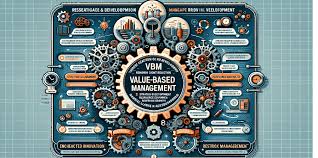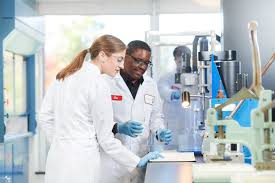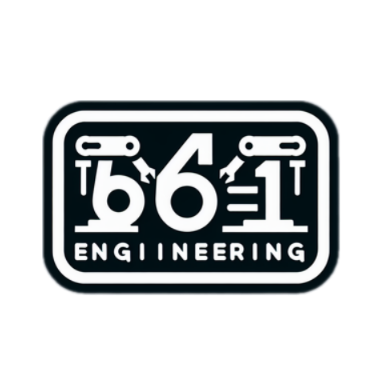Mechanical engineering is a dynamic and diverse field that plays a crucial role in the development of technology and innovation across various industries. One of the most exciting and impactful areas within mechanical engineering is Research and Development (R&D). This sector is where new technologies are conceived, tested, and refined, driving progress and shaping the future of mechanical systems. In this article, we will explore the career paths available in mechanical engineering R&D, the skills required, and the potential opportunities for professionals in this field.
What is Research and Development in Mechanical Engineering?
Research and Development in mechanical engineering involves the systematic investigation and experimentation aimed at discovering new knowledge, developing new products, and improving existing technologies. R&D professionals work on designing, testing, and refining mechanical systems and components to solve complex engineering problems and advance technological capabilities.
R&D roles in mechanical engineering can span various industries, including automotive, aerospace, robotics, energy, and manufacturing. The goal of these roles is to innovate, optimize, and enhance mechanical systems to meet current and future needs.
Key Areas of R&D in Mechanical Engineering

1. Automotive Engineering
In automotive R&D, engineers work on developing new vehicle technologies, improving fuel efficiency, enhancing safety features, and integrating advanced electronics. Innovations such as electric vehicles (EVs), autonomous driving systems, and advanced materials are key focus areas.
- Example: Developing new lightweight materials to improve fuel efficiency and vehicle performance.
2. Aerospace Engineering
Aerospace R&D involves designing and testing aircraft and spacecraft components. Engineers in this field work on improving aerodynamics, propulsion systems, and materials to enhance performance, safety, and efficiency.
- Example: Designing advanced propulsion systems for commercial and military aircraft.
3. Robotics and Automation
In robotics and automation, R&D engineers focus on creating and refining robotic systems and automated processes. This includes developing new robotic arms, improving machine learning algorithms, and designing systems for industrial automation.
- Example: Developing robotic systems for precision manufacturing and assembly.
4. Energy Systems
Energy systems R&D involves working on technologies to generate, store, and use energy more efficiently. This includes renewable energy sources, such as wind and solar power, and improving traditional energy systems like fossil fuels and nuclear power.
- Example: Designing more efficient wind turbine blades to increase energy capture and reduce costs.
5. Manufacturing and Materials
In manufacturing and materials R&D, engineers work on developing new manufacturing processes and advanced materials. This includes improving production techniques, enhancing material properties, and developing new composite materials.
- Example: Developing advanced manufacturing techniques like 3D printing for complex mechanical parts.
Career Paths in Mechanical Engineering R&D
1. Research Scientist
Research scientists in mechanical engineering focus on conducting experiments, analyzing data, and generating new knowledge in their area of expertise. They work in laboratories or research institutions and often collaborate with other researchers and engineers.
- Responsibilities: Designing and executing experiments, analyzing results, publishing research findings.
- Skills: Strong analytical skills, proficiency in experimental techniques, ability to interpret complex data.
2. Development Engineer
Development engineers work on taking new concepts and turning them into practical, market-ready products. They are involved in the design, testing, and refinement of mechanical systems and components.
- Responsibilities: Designing prototypes, testing and evaluating designs, collaborating with manufacturing teams.
- Skills: Proficiency in CAD software, problem-solving skills, knowledge of materials and manufacturing processes.
3. Project Manager
In R&D projects, project managers oversee the planning, execution, and completion of research and development activities. They coordinate between different teams, manage budgets, and ensure that projects meet deadlines and objectives.
- Responsibilities: Managing project timelines and budgets, coordinating with teams, ensuring project goals are met.
- Skills: Strong organizational skills, leadership abilities, experience in project management.
4. Systems Engineer
Systems engineers focus on the integration and optimization of complex mechanical systems. They ensure that different components work together seamlessly and address any issues that arise during development.
- Responsibilities: Integrating subsystems, troubleshooting issues, optimizing system performance.
- Skills: Systems thinking, analytical skills, experience with integration and testing.
5. Innovation Manager
Innovation managers are responsible for identifying new opportunities for technological advancements and driving innovation within an organization. They work on developing and implementing strategies to foster innovation and oversee R&D initiatives.
- Responsibilities: Identifying emerging technologies, developing innovation strategies, managing R&D initiatives.
- Skills: Strategic thinking, creativity, experience in technology management.
Skills Required for a Career in R&D

1. Technical Expertise
A strong foundation in mechanical engineering principles is essential. This includes knowledge of materials science, thermodynamics, fluid dynamics, and mechanical design.
- Example: Understanding how different materials perform under various conditions.
2. Problem-Solving Abilities
R&D professionals must be able to tackle complex problems and develop innovative solutions. This requires strong analytical and critical thinking skills.
- Example: Developing solutions to overcome design challenges in a new product.
3. Communication Skills
Effective communication is crucial for collaborating with team members, presenting research findings, and explaining complex concepts to non-engineers.
- Example: Presenting research results to stakeholders and writing technical reports.
4. Project Management
Skills in project management are important for planning and executing R&D projects, managing resources, and ensuring timely delivery of results.
- Example: Overseeing the development of a new product from concept to market.
5. Creativity and Innovation
R&D requires a high level of creativity to develop new ideas and approaches. Being able to think outside the box and explore unconventional solutions is essential.
- Example: Designing a novel approach to solving a common engineering problem.
Educational and Professional Requirements
1. Educational Background
A bachelor’s degree in mechanical engineering or a related field is typically required for entry-level positions in R&D. Advanced positions may require a master’s or doctoral degree, especially for roles focused on research and advanced development.
2. Certifications and Training
Certifications related to project management, such as PMP (Project Management Professional), or specialized training in areas like materials science or robotics can be beneficial for career advancement.
3. Experience
Gaining experience through internships, co-op programs, or entry-level positions in mechanical engineering can provide practical skills and knowledge that are valuable in R&D roles.
The Future of R&D in Mechanical Engineering

The field of mechanical engineering R&D is continually evolving, driven by advancements in technology and changes in industry needs. Emerging areas such as artificial intelligence, advanced materials, and renewable energy are likely to play significant roles in shaping the future of R&D.
1. Emerging Technologies
Innovations in AI and machine learning are transforming how mechanical systems are designed and optimized. R&D professionals will need to stay abreast of these technologies and explore their applications.
- Example: Using AI algorithms to improve predictive maintenance for mechanical systems.
2. Sustainability
There is an increasing focus on sustainability and environmental impact in R&D. Engineers will need to develop solutions that reduce energy consumption, minimize waste, and support sustainable practices.
- Example: Designing energy-efficient systems for renewable energy applications.
3. Interdisciplinary Collaboration
R&D in mechanical engineering will increasingly involve collaboration with other fields, such as electronics, software engineering, and materials science. This interdisciplinary approach will drive innovation and create new opportunities.
- Example: Integrating mechanical systems with advanced sensors and control systems for smart manufacturing.
Conclusion
A career in Research and Development within mechanical engineering offers exciting opportunities to shape the future of technology and innovation. Whether you’re interested in automotive, aerospace, robotics, energy systems, or manufacturing, R&D provides a platform to tackle complex challenges and drive progress. By developing the right skills, gaining relevant experience, and staying updated with emerging trends, you can build a successful career in this dynamic and impactful field. The future of R&D in mechanical engineering holds great promise, with endless possibilities for those who are passionate about pushing the boundaries of technology.



